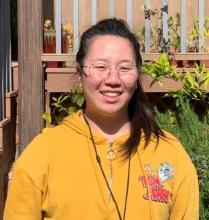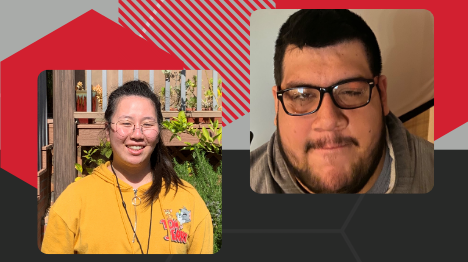Thank you to our counselors that have provided so much support to our students and families as we recognize counselors during Counseling Awareness Month. To learn more about counseling check out the American Counseling Association and the American Association for Marriage and Family Therapy. You can also learn more about our programs from the student prospective by reading our student profiles.

Emily Park
Second year M.S. Marriage & Family Therapy Candidate
Emily Park decided to pursue an M.S. in Marriage and Family Therapy (MFT) because it was the most practical approach in working in clinical mental health given the program’s length of time. She chose CSUN for three reasons: she wanted to stay in Los Angeles, she wanted to attend a public university and she appreciated the emphasis on diversity that the program focused on.
Emily is half way through the program and one of the most valuable lessons she learned is to accept that it is okay to not know everything. “I went into this program with so much vanity; I went to a prestigious university, I had experience working in a mental health research lab, I felt like I had enough knowledge. That changed when I started my practicum class and I realized, oh no, I don’t know anything!” Emily explains that as she advances in the program and the more she learns she realizes the more she doesn’t know and it’s okay to make mistakes. Emily also recommends to anyone looking into an MFT program to consider their life’s current flexibility. “You have to prioritize what’s important and accommodate different aspects of your life because this is a full-time, challenging program. Make sure that the MFT program you are seeking aligns with your values.”
Emily’s short-term goals is to secure an associate's position once she is completed with the MFT program whereas her long-term goals are to work and serve youth and immigrant families in the Asian American community. Finally, Emily also wants to address a misconception about therapy, it’s much more than going into a room to talk. “There is a lot of work that happens before and after a therapy session. For every hour of counseling a therapist is putting in three to four hours of research for that client; from researching intervention methods to topics that the client is going through. Since every client and situation is different you have to prepare for their specific needs.”

Charles Thoms
Second year M.S. Marriage & Family Therapy Candidate
Charles Thoms is in his second year in the M.S. Marriage and Family Therapy (MFT) Program. What drew Charles to MFT is that he was interested in working in health but really wanted to have that person to person connection; he wanted to help someone feel like they are being heard and seen. Charles heard that CSUN’s MFT program not only excels in developing future professionals but develops candidates on a personal level, “It was important to have a personalized experience, with small class sizes and an intimate space, nothing can replace that perk.”
Charles spoke enthusiastically about his fulfilling experience in the MFT program. “There is this prestige about CSUN that is not talked about: the philosophy of how we are being taught, the way classes are delivered, and the approach is so personal.” He appreciates how the faculty bring their professional field experience into discussions to make the material and theories they are studying real. Charles also finds so much value from his peers in his cohort; he feels supported by everyone in the program, “Everyone here is our network, we are not competing with one another, rather we support and learn from one another. No one will understand what you are going through more than your peers and it’s my peers that have given me the motivation to keep going and not give up.”
Charles has goals of opening his own private practice in his rural hometown and hopes to make mental health services more accessible to people in his Latinx community. He talks about how there is still much stigma about mental health and the misconception that if we don’t talk about our issues they will magically disappear. Charles then explained how marriage/family, therapists see the big picture and how they just want to help, “We are in this process with you, we are collaborative, and we are a team. If you are struggling, we are not going to give up on you. We will take one small step at a time so that the big problem doesn’t feel overwhelming”







